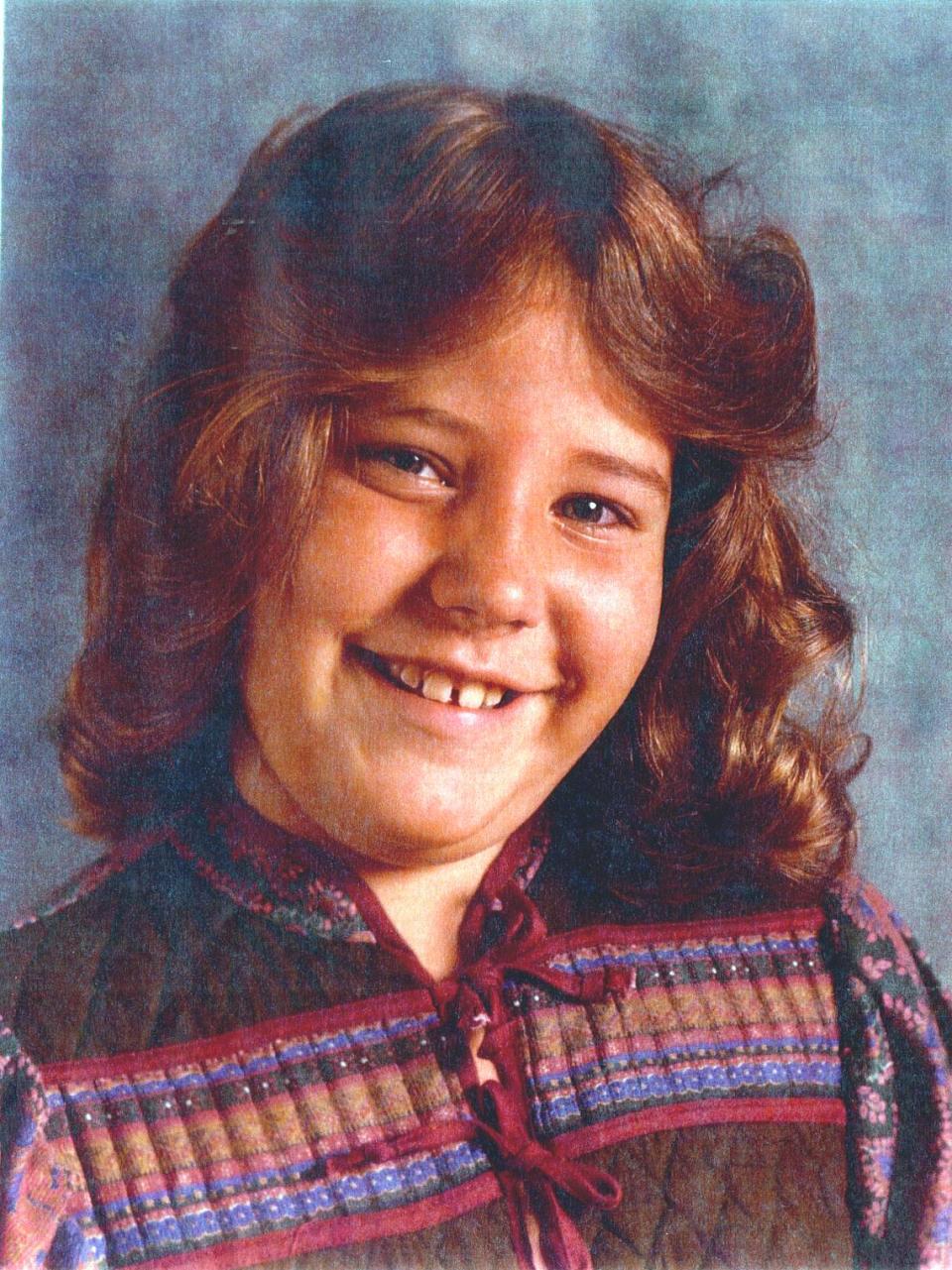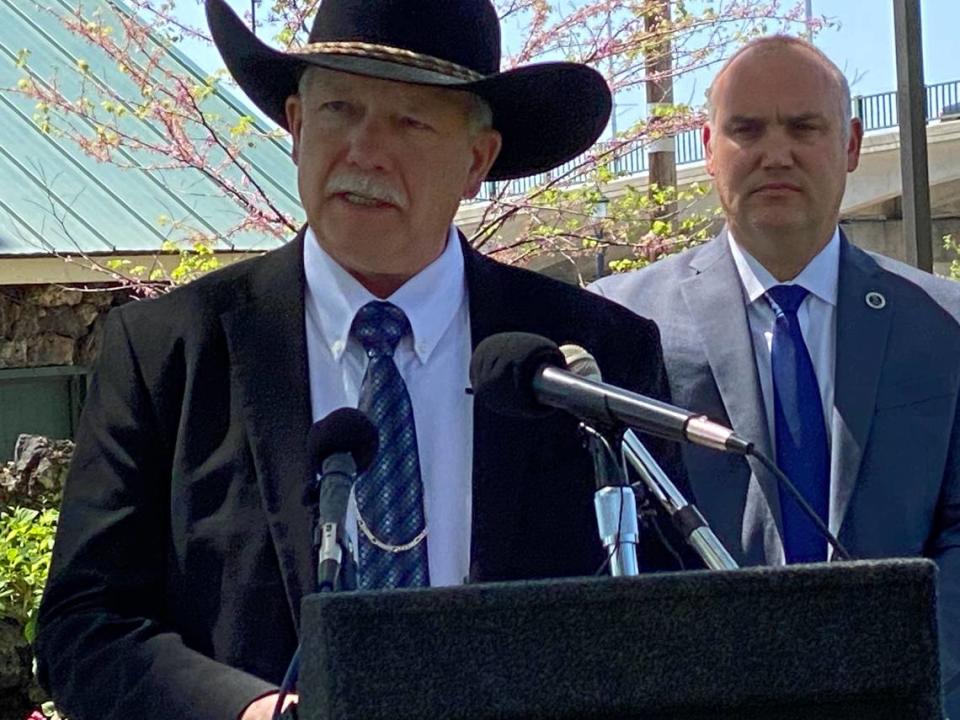An Idaho girl was raped and killed over 40 years ago. The man accused is now on trial
Daralyn Johnson woke up in the early morning of Feb. 24, 1982, excited to get to school and give her friend a letter.
The 9-year-old Nampa girl rushed to get ready pulling on her wool socks, greenish pants and a red soccer shirt that cold morning before heading out the door and down six blocks to the now-closed Lincoln Elementary School, leaving her 6-year-old sister, Darci, behind.
“What Darci didn’t know was that that would be the last time she’d see her sister alive,” Canyon County Deputy Prosecutor Theodore Lagerwall told a courtroom last month.

Daralyn’s body was found 18 miles away in a drainage ditch near the Snake River. Lagerwall said she’d been raped, “viciously” beaten and drowned.
Four decades after Daralyn was killed, jurors listened to evidence during a weekslong trial and will deliberate on whether to convict now-66-year-old David Dalrymple, a Nampa man who lived within blocks of the Johnson family, of the first-degree murder and rape of Daralyn. Investigators charged Dalrymple with the crimes in January 2022 after using genetic genealogy testing. He was named as a suspect in 2020.
“The evidence that you are going to hear in this courtroom will establish that this defendant snatched her off of that street,” Lagerwall told the jurors in Dalrymple’s criminal trial. “He took her off that street and he robbed her of her joy, of her innocence, of a childhood — and he took her life.”

Dalrymple threatened to make girl ‘disappear’: affidavit
Charles Fain was initially charged and subsequently convicted of the crimes in November 1983. A few months later he was sentenced to death, and remained on death row for nearly two decades. He came within four days of being executed in 1991 before U.S. Supreme Court Justice Sandra Day O’Connor stayed the capital punishment, the Idaho Statesman previously reported.
“The problem is, Charles Fain didn’t do this,” Lagerwall said. “You will hear evidence, and see evidence, and hear testimony that clearly establishes this poor guy didn’t do this.”
Fain was released from prison in 2001, two years after he filed a motion to conduct DNA testing on pubic hairs that were found on Johnson’s autopsy. It wasn’t until 2021 that Fain was declared innocent by the state of Idaho.

The pubic hair found on Daralyn was sent to Bode Labs in Lorton, Virginia, in December 2000, according to an affidavit of probable cause filed by the Canyon County Sheriff’s Office and obtained by the Statesman through a public records request. For nearly 20 years, investigators tested the hair sample against several suspects until it was sent to another lab in 2018 at the recommendation of Greg Hampikian, Idaho Innocence Project co-director, according to prior Statesman reporting.
There the hair was determined to be male, and genetic genealogy was used by the FBI to identify a family line — the Dalrymple family, made up of four boys and two girls from Idaho, the affidavit said. At the time of the crime, two of the boys were too young to drive, and the third brother was serving in the military; the fourth was David Dalrymple, who was living in Nampa.
Jim Dalrymple, one of David’s brothers, consented to a DNA sample to help solve the case. Buccal swabs were sent to a lab at University of California Santa Cruz, where results confirmed it belonged to the Dalrymple family, according to the affidavit.
David Dalrymple refused to take a DNA test. But after authorities secured an order to forcibly obtain his DNA, testing showed again that the hair very likely belonged to him in April 2020, the affidavit said. David Dalrymple was officially charged with first-degree murder and rape in January 2022.
Dalrymple was already serving a 20-year to life sentence for kidnapping, lewd contact with a child and sexual abuse of a minor for a separate case, according to the affidavit. The victim in that case was a young girl.
The Canyon County Sheriff’s Office said that during their investigation, they located two other victims of Dalrymple who never reported the assault to law enforcement, the affidavit said.
Both of the victims said they would’ve been between the ages of 8 and 11 when the alleged sexual assaults occurred, with one of the victims telling law enforcement that Dalrymple took her down to the river near Eagle and threatened to “make her disappear” if she reported the abuse, according to the affidavit.
“It has been a long journey — 42 years — for Daralyn Johnson’s killer to finally be facing justice,” Lagerwall said during the trial.
Defense attorney says prosecution lost evidence
During his brief opening statement, Dalrymple’s Caldwell attorney Jesse James attempted to shift the blame back onto Fain and discredit the way law enforcement handled the case.
James said the jurors would hear from Daralyn’s acquaintance that when she was walking to school that day, she saw an older gray car with big wheels that had a little girl in the inside who “could have been” Daralyn.
He added that Fain had a similar vehicle at the time, painted it red following Daralyn’s death and removed the carpets.
Back in the ‘80s, the prosecution and law enforcement lost evidence, including blood, that wasn’t properly refrigerated, James said. He added that in recent years the Canyon County Prosecutor’s Office also lost an entire “box of evidence” in the murder case.
“At the end of this case, you’re going to have more questions than answers,” James said. “You’re going to have more concerns than confidence, and you are going to have more doubt than proof.”

